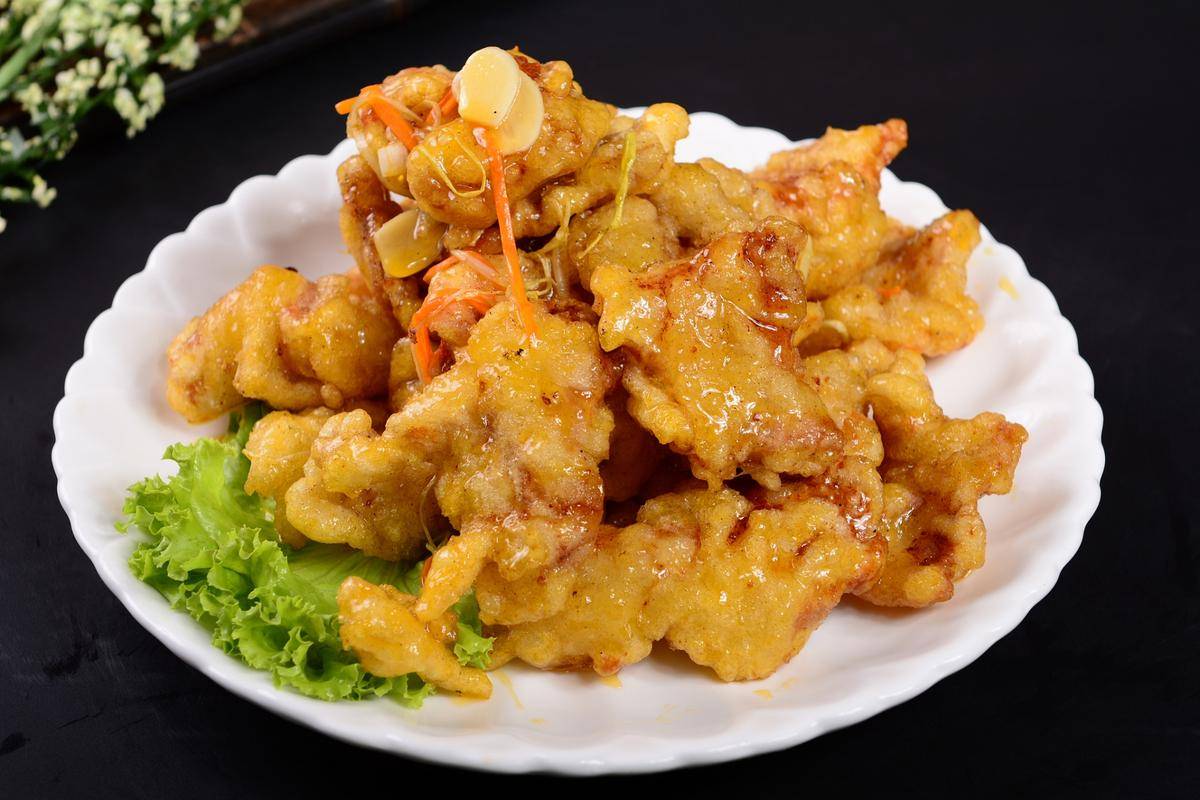Liaoning’s Guobaorou: The Crispy-Sweet Symphony That Divided China
In the realm of Chinese comfort food, few dishes spark as much friendly debate as Guobaorou (锅包肉) – Liaoning’s iconic “pot-wrapped pork” that delivers an explosive crunch followed by a tangy-sweet cascade of flavors. This northeastern classic exists in two deliciously rival versions: Harbin’s amber-hued sugar-vinegar original versus Liaoning’s vibrant tomato-sauce adaptation.
The Science of Perfect Guobaorou
🔥 Textural Nirvana
- Glass-like crispness: Achieved through double-frying at different temperatures
- Juicy interior: Pork tenderloin sliced 4mm thick – the Goldilocks thickness
- Sauce adhesion: Crisp coating absorbs just enough sauce to stay crunchy
🍅 The Great Tomato Rift
- Harbin Purists: Clear sugar-vinegar sauce (1907 original)
- Liaoning Innovators: Tomato-based sauce (1950s adaptation) with brighter acidity
🌽 Secret Ingredients
- Potato starch batter (never cornstarch) for extra crispness
- Northeastern soybean oil for high-smoke-point frying
- Golden ratio of 1:1.2 pork to sauce coverage
From Russian Influence to Cultural Icon
1907
- Created by Chef Zheng Xingwen in Harbin to please Russian railroad engineers
- Originally called “sweet and sour pork Russian style”
1930s
- Spread to Shenyang’s Lao Bian Dumpling Restaurant (est. 1829)
- Manchurian chefs added tomato paste from Dalian ports
1980s
- Became banquet essential across Northeast China
- Tomato version declared Liaoning’s official variation
Today
- Sparks friendly inter-provincial rivalry
- #GuobaorouChallenge trends annually on Douyin
The Master’s Technique: A 3-Act Drama
1. Knife Work
- 45° angle slices create maximum surface area
- Back-of-blade tenderizing for even cooking
2. Frying Ballet
- First fry at 150°C to set shape
- Second fry at 190°C for ultimate crispness
- Drain vertically to prevent sogginess
3. Sauce Choreography
- Harbin Style: Sugar + vinegar + ginger shreds (no ketchup!)
- Liaoning Style: Tomato paste + white vinegar + pineapple juice
How to Eat Like a Dongbei Native
🥢 Traditional Way
- Listen for the audible crunch (should hear through the room)
- Eat within 90 seconds of saucing
- Alternate with pickled Chinese cabbage
🍻 Modern Twists
- Spicy version with Korean gochujang
- Luxury edition with sea urchin powder
- Guobaorou bao (sandwich version)
Pro Tip: Visit Shenyang’s Zhongjie Night Market to taste both versions side-by-side from rival stalls that have competed since 1978!
Team Tomato or Team Sugar-Vinegar? Battle it out in the comments!
Coming next: The ultimate crispy showdown – Sichuan’s sweet-water noodles vs. Guangdong’s sweet-sour pork! 🍖🔥
